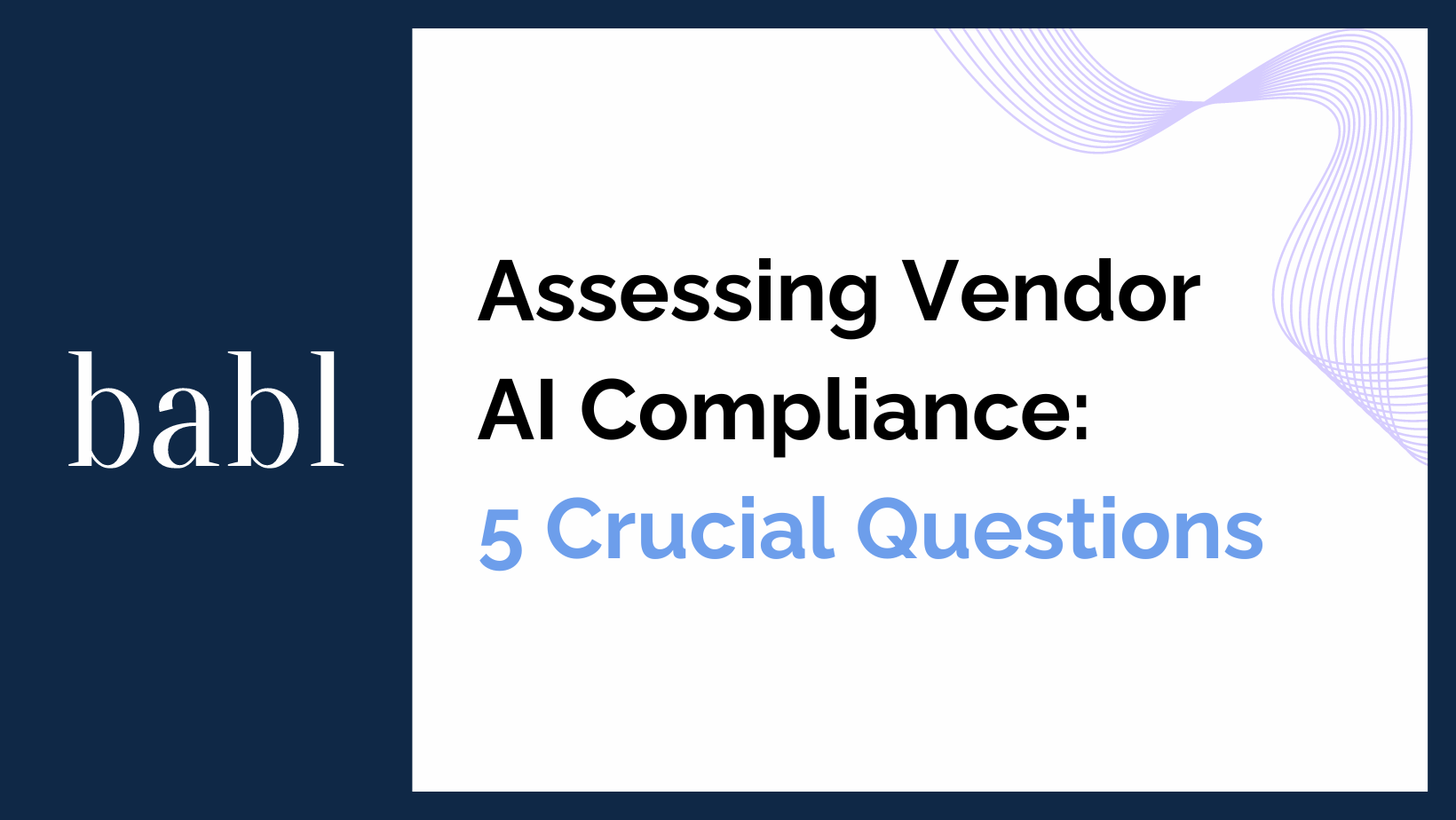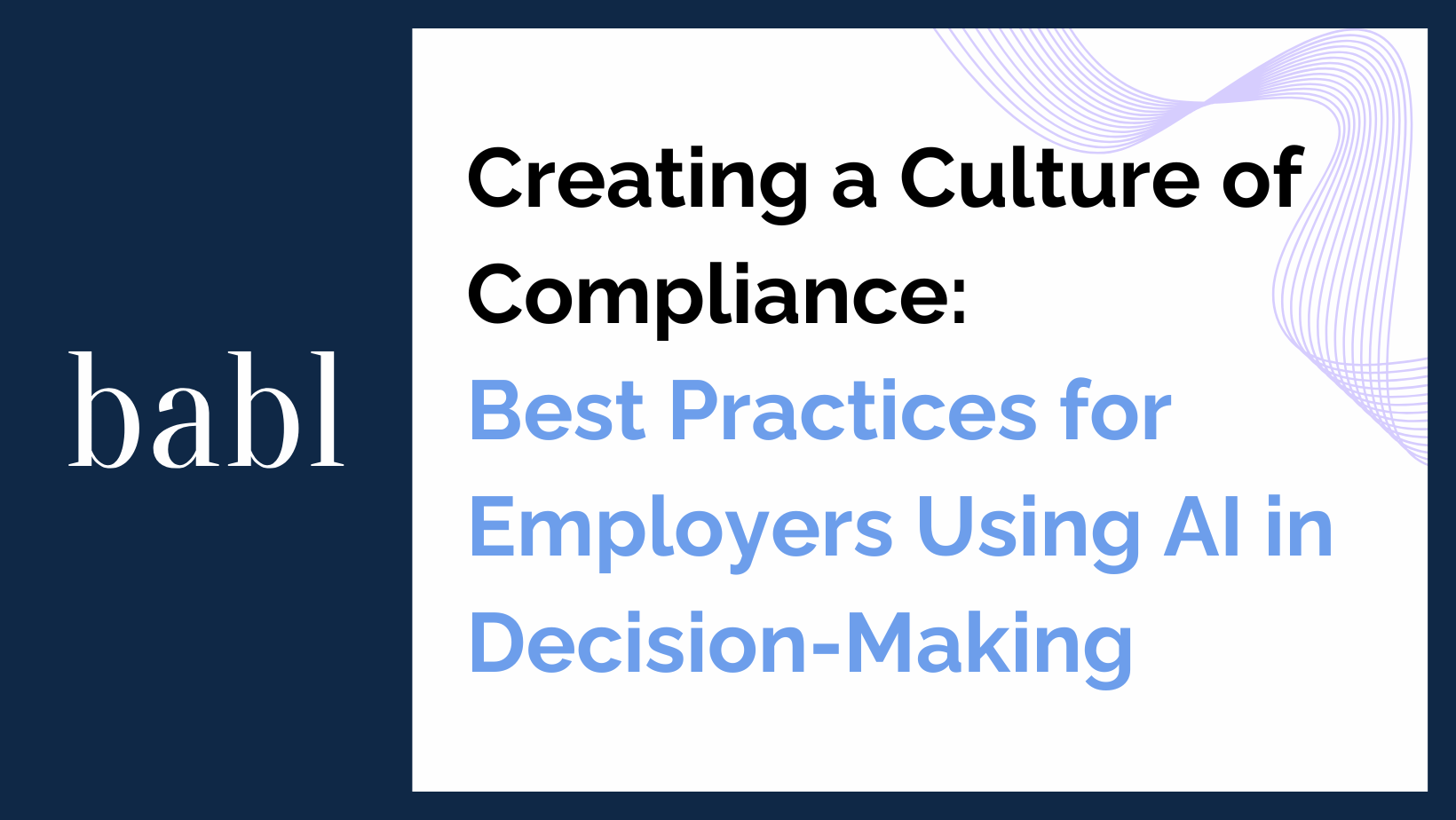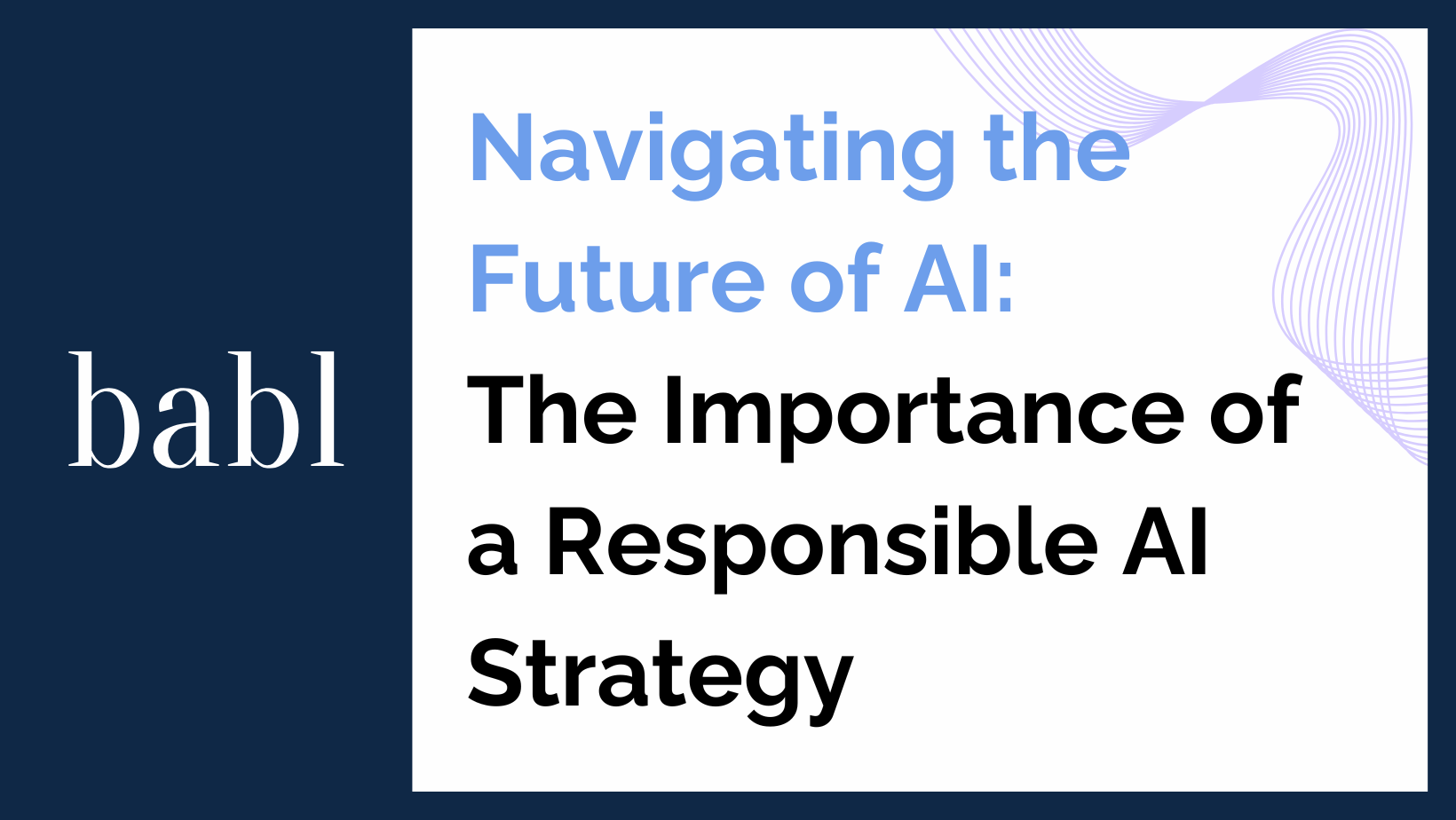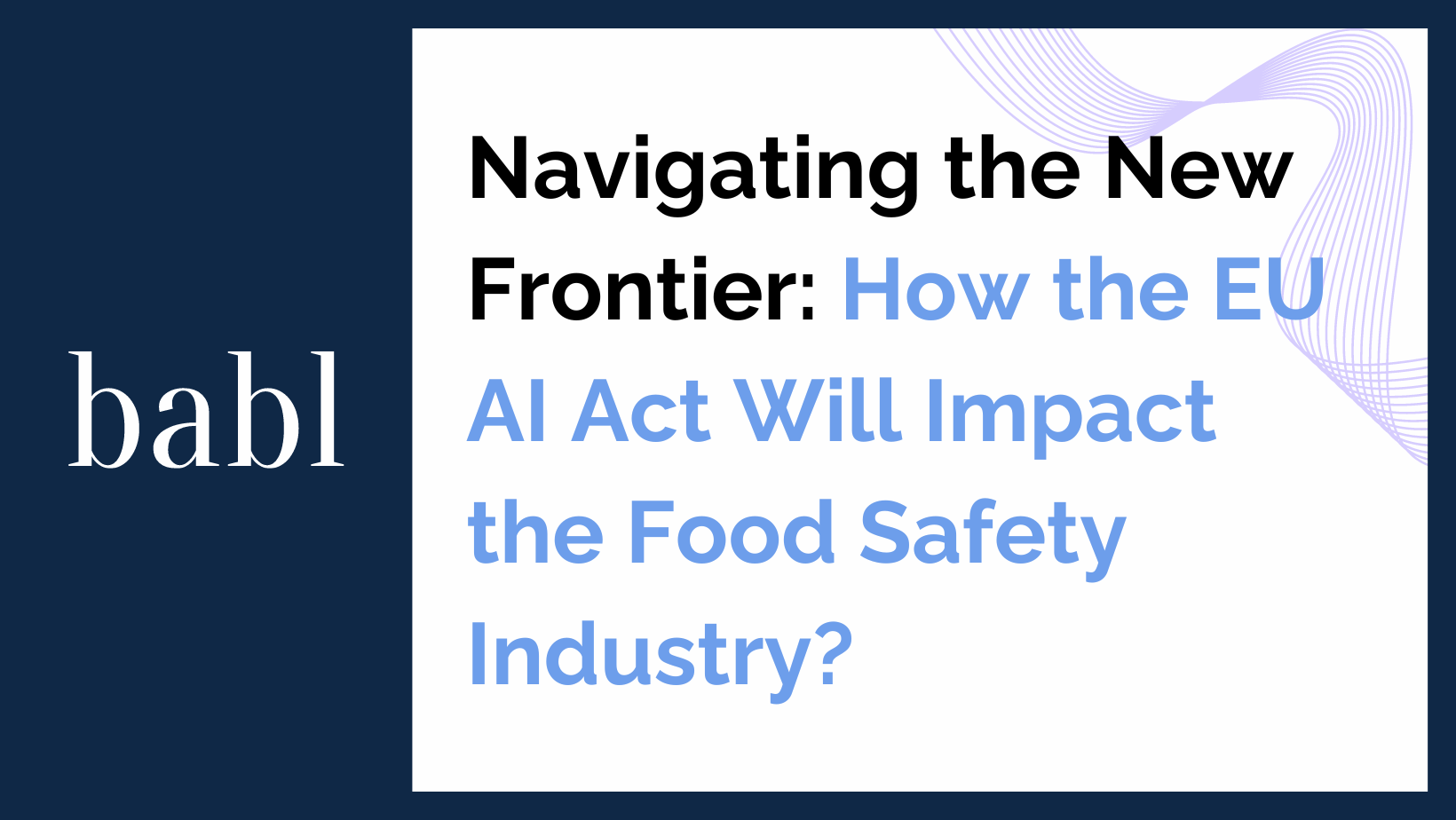In today’s rapidly evolving technological landscape, Finance, Legal, and Procurement professionals are tasked with ensuring their companies’ compliance with emerging artificial intelligence (AI) regulations. Ignoring these regulations not only poses financial risks but also jeopardizes professional reputations. To navigate this complex terrain, it’s essential to ask the right questions when assessing vendor AI compliance. Here are five critical inquiries to guide your evaluation process.
1. Is the supplier compliant with AI model-building regulations?
The cornerstone of vendor assessment lies in determining if suppliers adhere to regulations governing AI model development. For instance, the EU AI Act and local ordinances like NYC 144 mandate compliance measures such as bias audits for automated hiring systems. Ensuring your supplier aligns with these regulations is paramount to mitigating legal and financial risks.
2. Does the supplier provide comprehensive documentation of data and models?
Transparency is key to assessing vendor reliability. Requesting thorough documentation of data sourcing and model management processes enables better understanding and evaluation of AI solutions. Comprehensive documentation instills confidence in the vendor’s practices and facilitates compliance verification.
3. How does the supplier address bias and ethical concerns in their AI solution?
Mitigating bias and ensuring ethical AI practices are fundamental in vendor selection. Inquire about the supplier’s approach to bias mitigation, including the use of fairness metrics and bias testing. A robust strategy for addressing ethical concerns demonstrates the supplier’s commitment to responsible AI deployment.
4. What’s the supplier’s organizational approach to ethics?
An organization-wide commitment to ethical AI practices is indicative of a vendor’s dedication to compliance and accountability. Seek clarity on the supplier’s AI governance policy, endorsed by top executives. This policy should outline clear guidelines for ethical AI development and usage, fostering transparency and accountability within the organization.
5. How does the supplier manage AI-specific cybersecurity risks?
Cybersecurity is a critical aspect of AI implementation. Inquire about the supplier’s strategies for mitigating AI-specific cybersecurity risks, such as prompt injection, data poisoning, and model theft. A comprehensive cybersecurity protocol ensures the protection of sensitive data and mitigates potential security breaches.
Asking these five questions can guide informed decision-making and mitigate risks associated with vendor selection. By prioritizing transparency, ethical practices, and cybersecurity measures, organizations can align with regulatory requirements and safeguard their reputations and financial interests.
This blog post was inspired by a Linkedin post by BABL AI Consultant Abhinav Mittal found HERE.
If you find yourself in need of guidance along the way, remember that BABL AI‘s team of Audit Experts is here to offer invaluable insights and support tailored to the nuances of the EU AI Act and other global regulations. Reach out today to stay ahead of the curve and ensure your AI practices align with the latest standards and requirements.





